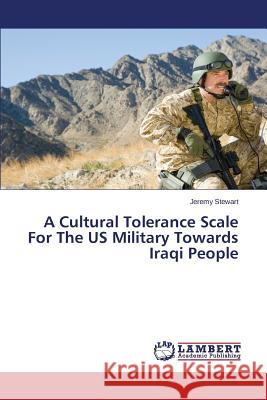A Cultural Tolerance Scale For The US Military Towards Iraqi People » książka
A Cultural Tolerance Scale For The US Military Towards Iraqi People
ISBN-13: 9783659612565 / Angielski / Miękka / 2014 / 96 str.
Cultural tolerance has generally been studied in relation to international assignees (IAs) for business organizations (Church, 1982; Gasser, 1995; Gasser & Tan, 1999). This study focuses on developing a Cultural Tolerance scale that will effectively measure the attitudes of the U.S. service members in Iraq. Three components of attitude were described by Fishbein and Ajzen (1975) as being: affect, belief, and intention. Through a series of interviews and focus group sessions with SME's from both the U.S. Military and Iraqi citizens, a 15-scenario Cultural Tolerance Scale was created to assess attitude and experienced stress of 96 participants from the University of Northern Iowa. Scenarios detailed a hypothetical situation where a U.S. soldier was confronted with a cultural norm or value commonly held in Iraq. Big Five traits and RWA levels were also examined.
Cultural tolerance has generally been studied in relation to international assignees (IAs) for business organizations (Church, 1982; Gasser, 1995; Gasser & Tan, 1999). This study focuses on developing a Cultural Tolerance scale that will effectively measure the attitudes of the U.S. service members in Iraq. Three components of attitude were described by Fishbein and Ajzen (1975) as being: affect, belief, and intention. Through a series of interviews and focus group sessions with SMEs from both the U.S. Military and Iraqi citizens, a 15-scenario Cultural Tolerance Scale was created to assess attitude and experienced stress of 96 participants from the University of Northern Iowa. Scenarios detailed a hypothetical situation where a U.S. soldier was confronted with a cultural norm or value commonly held in Iraq. Big Five traits and RWA levels were also examined.











